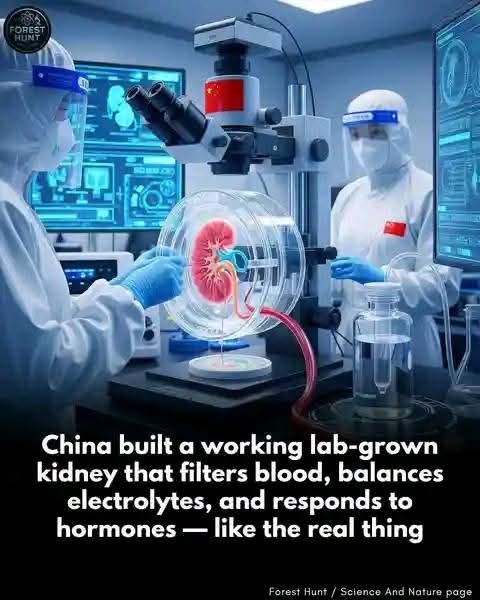
In a biotech facility in Shanghai, Chinese researchers have successfully grown a functioning lab-made human kidney that can filter blood, balance electrolytes, and produce urine — entirely outside the body. It’s not a model or simulation — it’s a real, bioengineered organ.
The team used stem cell-derived organoids, seeded onto a vascular scaffold created from biodegradable hydrogel. Over weeks, the tissue matured into a working nephron system — complete with glomeruli, tubules, and urine-collecting structures. The kidney was then connected to an artificial circulatory loop, and it began filtering blood plasma in real time.
Unlike previous bioartificial kidneys that were partial or lacked function, this one maintained stable filtration for over 60 hours — separating waste from blood and returning clean plasma, just like in a living body. It even responded to hormonal signals like ADH and aldosterone, adjusting water retention and salt levels.
This breakthrough addresses one of medicine’s greatest crises: kidney failure, which affects over 850 million people globally. Donor shortages, transplant rejections, and dialysis dependency have limited treatment for decades. But this lab-grown organ could eliminate the waitlist — and offer a personalized, rejection-free solution.
China’s biotech team is now running scaled trials on pigs, with human clinical pilot studies expected within two years. Their aim is to develop implant-ready kidneys made from a patient’s own cells — eliminating rejection entirely.
If successful, it won’t just change nephrology. It will mark the beginning of on-demand organ manufacturing — the ultimate goal of regenerative medicine.
Source: Reuters